What is the Best Ecommerce Platform for Your Business?
It is never an easy task to choose the best eCommerce platform for your business, it is the first decision you need to make when you are starting your website. So if you are looking for the right one for your business and build your online store, you have landed on the right read.
However, before diving into the details, let’s discuss what an eCommerce platform really is — A platform doesn’t just help you build your website, moreover, it is a software used to build your online store, giving you the complex technology needed to run your store.
There are factors to consider when choosing the best eCommerce platform for your business because not all businesses are alike — there are some that cater to small businesses and some are geared toward larger ones.
So, what are the different factors to consider when choosing the best eCommerce platform for your business?
- The size of your business: Small, medium, or large-sized business
- The kind of products you are offering
- Is your business a startup or an established one?
- Your online business includes brick-and-mortar stores
- Your budget
In addition to all these factors, the price of the eCommerce platform is crucial, especially when you’re a startup.
Did you know that in the US alone, eCommerce sales grew up to 14.1% in the first quarter of the previous year compared to the Q1 of 2017 as reported by Cloudways.
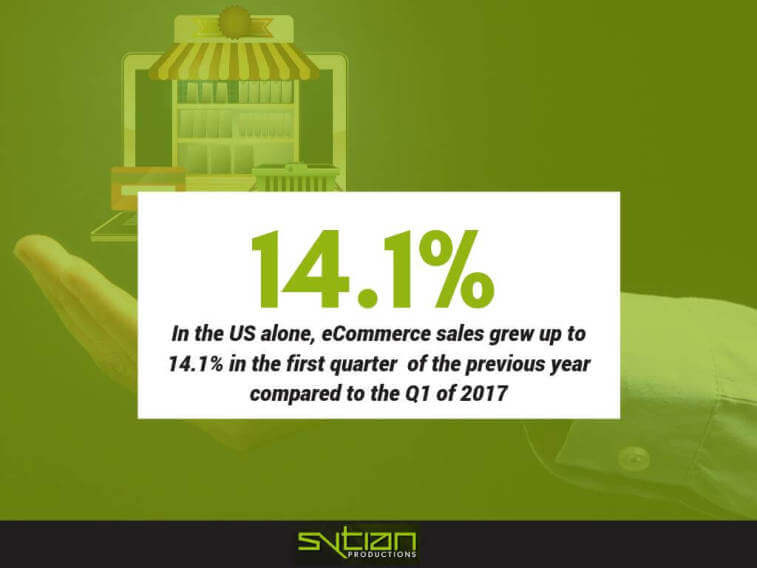
Now that you have a better idea of what an eCommerce platform is, let’s talk about the best options you can choose from — we’ll discuss the pricing, cons, and pros of the different eCommerce platforms today.
Here are 3 of the best options you can choose from:
1. Wix Stores: A place to create professional websites

Wix is a website builder that allows you to create your website via a drag and drop option, furthermore, it allows you to build your eCommerce store — this is excellent for startup and small businesses.
Pros
Wix is easy to use with no coding required; you can easily drag and drop content on your website with the help of a user-friendly editor. With over 500 templates specifically created for eCommerce stores, you have a lot to choose from — you can also use stock images right away. Wix also offers a shopping cart complete with all the functionality you’ll need for your store and there are hundreds of apps to further enhance your website.
Cons
However, keep in mind that Wix is not a 100% eCommerce platform but a website builder. Therefore, its eCommerce capabilities or features are basic. Also, once you’ve published your website, you can no longer change its template which is a huge drawback.
Pricing
Wix’s premium plans for business and eCommerce offer different packages. Prices start from $17 to $35 per month. However, you can also first try their free plan to test drive the platform but keep in mind that it doesn’t offer an eCommerce option.
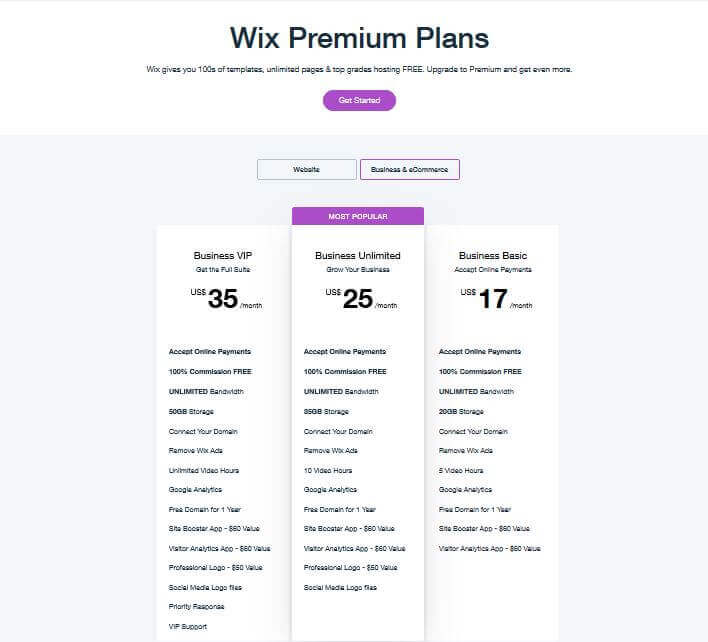
2. Shopify: Trusted by over 800,000 businesses worldwide
Shopify is considered one of the most popular eCommerce platforms to date. You can easily sell, ship, and manage your products using this platform — not to mention an easy to use admin panel where you can add and remove products, input your store data, and process orders.
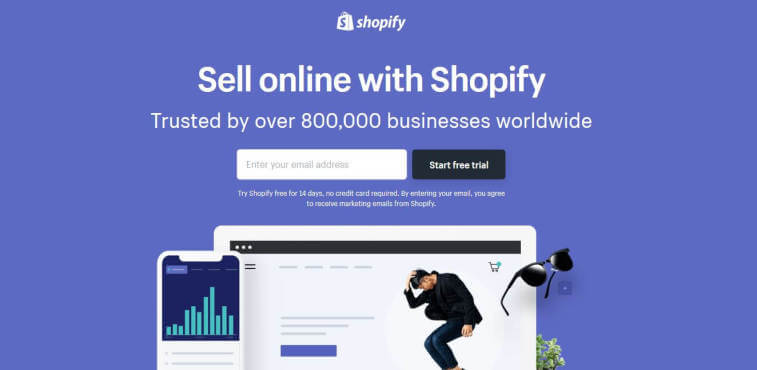
Pros
This eCommerce platform is user-friendly and really quick to set up — sign up using your email and you can start building your store and start selling right away. Its intuitive US (user interface) makes it easy to create a profile for your products and utilize SEO (search engine optimization) features such as meta description and title tag. Shopify also offers numerous free mobile-optimized themes and there are more to available for purchase. Coding is also not a requirement to customize your website.
Their support is top-notch which you can access via phone, live chat, email, and Twitter 24/7. The platform supports various third-party payment gateways and additional sales channels.
Cons
One of the drawbacks of Shopify is that is can be pricey with the base fee and the plugins, features, and themes you’ll be paying. Some of these are one-time payments, some monthly, and some yearly. There are also transaction fees if you’re not using their built-in payment system.
Shopify uses its own markup language which they called “Liquid,” which is based on Ruby on Rails, making it difficult to make changes using coding.
Pricing
Shopify offers different pricing which starts from $29 to $299 monthly. The platform also has “Shopify Lite” which lets you sell products on social media networks while letting you embed products on your website for the shopping cart option — this would cost you $9 monthly.
Shopify also offers a 14-day trial to let you take a look and try the platform before making any decision or commitment.
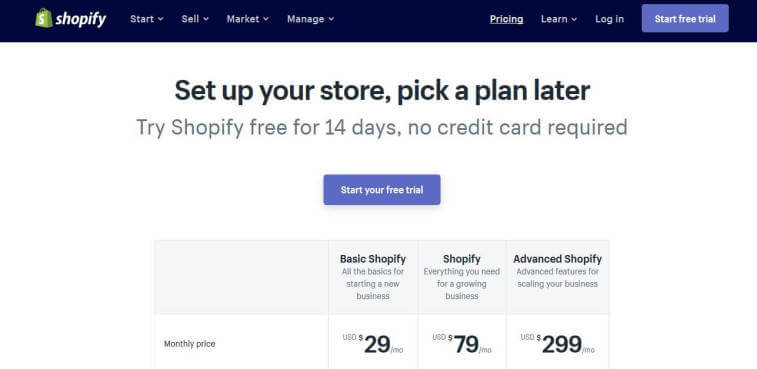
3. BigCommerce: The Solution for Small Business
BigCommerce provides a hosted eCommerce solution both as a shopping cart and a full SaaS (software as a service) platform, and seemingly similar to Shopify — this platform is also considered on the top of the list when it comes to proving services to businesses.
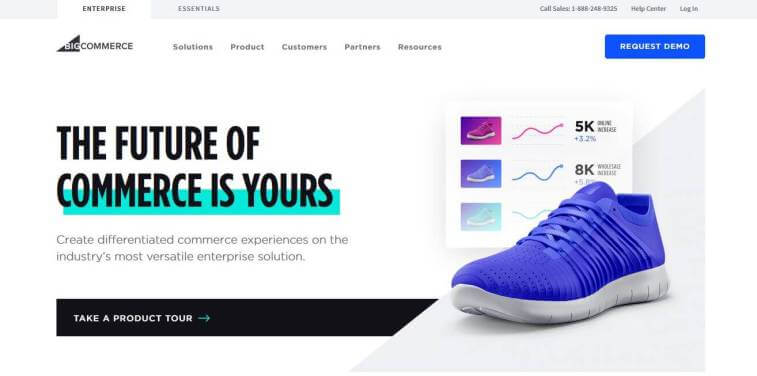
Pros
BigCommerce comes with excellent store management capabilities and offers a huge number of tools and features such as unlimited product variants, options to handle returns, promotions, coupons, and discounts. It also offers flexible shipping options that allow rate and quote calculations — a feature that would help your business stand out.
The platform also integrates with social media, Amazon, and eBay. It enables you to sell across multiple sales channels. It also offers numerous marketing tools.
Its multiple APIs (Application Programming Interface) helps you make your eCommerce website customizable and flexible.
Cons
BigCommerce’s disadvantage is its limited templates to choose from and their premium themes can be pretty expensive. Another is that design customization is not the most user-friendly.
The platform also has not native POS (point of sale) features and getting an advanced feature like an abandoned cart saver is relatively expensive.
Pricing
The platform’s plans can cost you $29.95 to $249.95 per month. You can save some funds by getting higher plans and paying annually. There is also an Enterprise option but you have to make an inquiry to get more information.
The themes could cost you $145 to $235, but the best part is that there are no transaction fees.
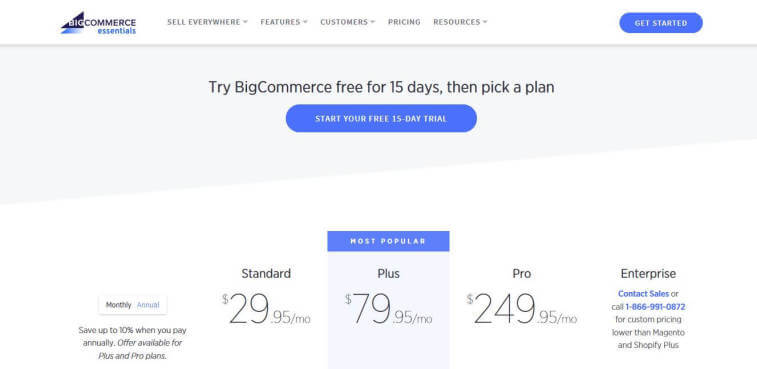
Keep in mind that standalone eCommerce platforms can be an excellent option for starting your online store. It is true that choosing the best for you is no easy task, but you’ll likely to get the best one by choosing from the platforms above.
Another important thing to keep in mind when making a decision is that the best eCommerce platform has an excellent user interface because your time is valuable to be spent on technical hang-ups. An easy to use platform would help you run your business smoothly.